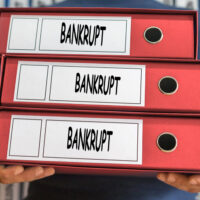Completing a Chapter 13 Bankruptcy Case

Chapter 13 bankruptcy, also known as an “adjustment of debts” bankruptcy, allows you to retain your property while making payments on your debts over the course of three to five years. It can be difficult to keep up with the payments on a Chapter 13 case over the course of years, but there are substantial benefits to be gained for debtors who do so. Read on to learn about how a Chapter 13 case is completed, and what benefits await those who stick to their Chapter 13 plans through to completion.
How do you know how long you have left on your case?
Knowing how long you’ll be making payments toward your Chapter 13 plan isn’t always crystal clear. Some debtors will know exactly how many payments they need to make, and they will not experience any changes to the payment amount throughout their plan. Others may experience changes in their income and expenses that could affect their plan. Should your costs of living or income change substantially, the bankruptcy trustee may create a modification to your plan that could change how long you’re making payments.
Additionally, the amount you owe on certain debts may not be clear when your plan is first created, which will affect the length of your plan. Your lawyer can provide you with an updated estimate on how much longer you can expect to be making payments, and can find out precisely how much longer is left by requesting this information from your bankruptcy trustee.
Closure of your case
Once your final payment is made, your bankruptcy trustee will notify you that you’re through making payments. After your attorney completes a final review of your case, the trustee will notify the judge, who will issue a discharge order that discharges all or nearly all of your general unsecured debts and closes your case.
Benefits that come only upon completion of your case
If you complete your Chapter 13 plan to the satisfaction of the trustee and court, you’ll have the majority of your unsecured debts discharged. Additionally, if you owed unpaid taxes, it is likely that you will not have to pay interest or penalties on those taxes. If you don’t complete your case, however, those penalties are often re-imposed. If you had a second or third mortgage that was stripped through bankruptcy, you’ll be permanently relieved of this debt, though you would not be if you did not complete your plan. Your lawyer can help you create a plan that is manageable and will allow you to be successful in getting out of crushing consumer debt.
If you need help finding a way out of debt, get help from the knowledgeable and dedicated New York bankruptcy lawyers at the Hudson Valley offices of Rusk, Wadlin, Heppner & Martuscello, LLP in Marlboro at 845-236-4411, or in Kingston at 845-331-4100.